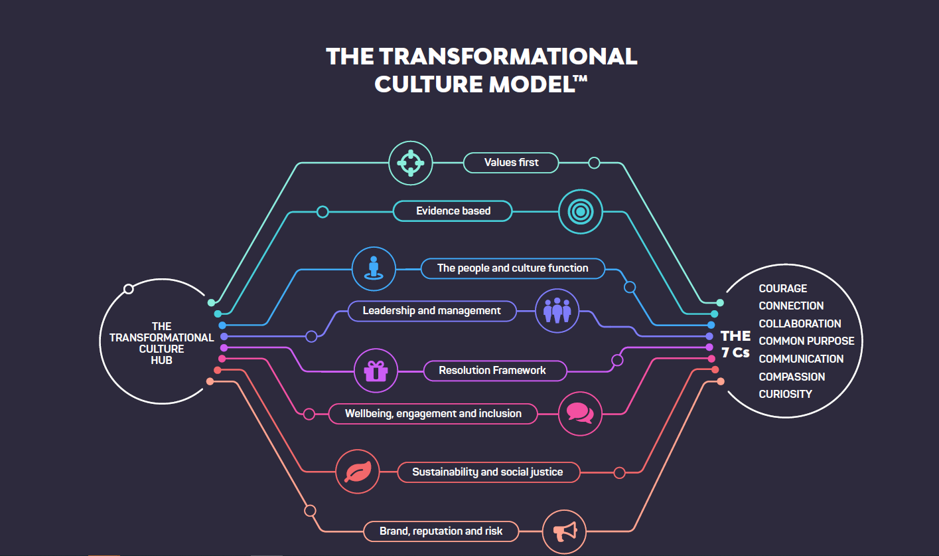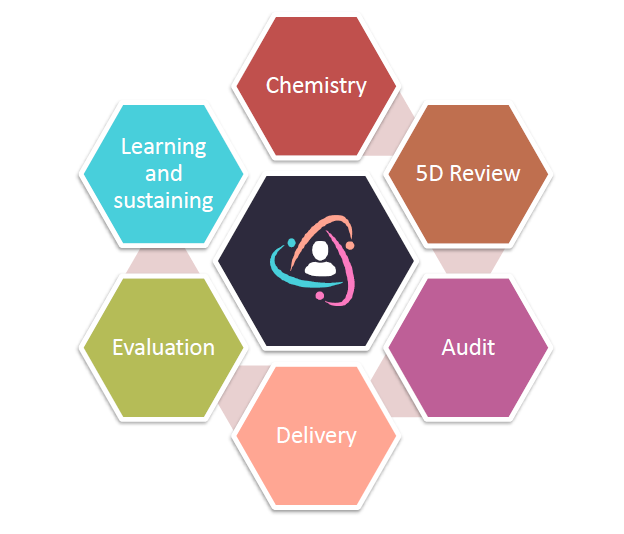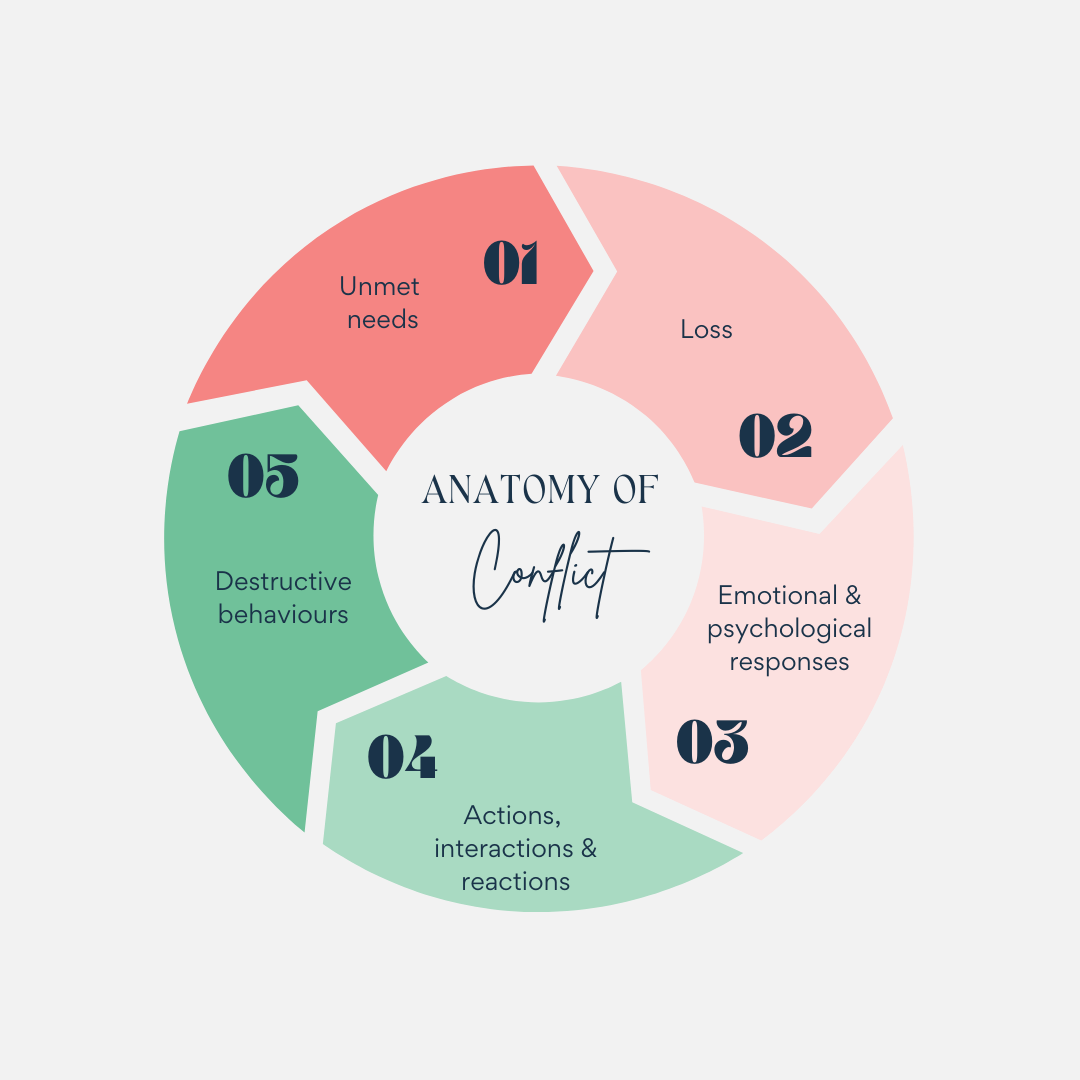
Share article:
Tags:
The meaning of culture
“The culture of any organisation is shaped by the worst behaviour the leader is willing to display.”
David Liddle, author and principal of Transformational Culture
There are so many definitions of culture – in fact, there’s over four million. But when David Liddle asked the audience on his latest webinar titled Transformational Trailblazers, most had the same answer. Within the workplace, culture is about beliefs, values, how we engage with each other and how our leaders set examples. In essence, it’s our lived experience: the tipping point between culture and climate.
If this is our experience, how do we ensure that we’re creating an environment where people can flourish? Is our culture “good”? And if it could be better, how are we challenging misaligned or problematic behaviours within our company climate?
In David’s ideation of a transformational culture, the relationship between values, mindset, behaviours, purpose, leadership and power all begin to connect with each other. When we begin to dissect culture, we need to look at it as a whole system.
“A system is a set of related components that work together in a particular environment to perform whatever functions are required to achieve the system’s objective.”
Donna Meadows, environmental scientist and writer
Transformational Culture builds a bridge from transactional to transformational, providing a blueprint for organisations to create systems and structures to bring about the changes where employees feel safe and valued; managers feel competent, confident and courageous, and where our HR functions feel mobilised to facilitate and enable the necessary conversations to support a proactive and predictive company culture. It’s a whole systems model, with each part working in constructive harmony to promote a fair, just, inclusive, sustainable and high-performing climate.
The Transformational Culture Model

To get to this ideal lived experience, an inclusive and collaborative model needs to be deployed and embedded within a company’s internal makeup. The Transformational Culture Model designs this into existence, incorporating a Transformational Culture hub to take ownership of organisational culture. This hub involves all voices within a business, with key motives: working to identify challenges and problems; delivering strategic objectives; driving necessary changes to protect a transformational culture. This cross-functional group of people sustain positive change by weaving a golden thread of values through everything the organisation does: balancing values and evidence; prioritising people and culture; leadership and management; resolution; wellbeing, engagement and inclusion; sustainability and social justice; and brand, reputation and risk.
“When we align happiness, health and harmony, we get better business outcomes, measured in terms of productivity and performance. This isn’t just a morally or ethically good thing to do; this is good for business by creating a happier environment for our people to be able to thrive.”
David Liddle
The 7cs
By working collaboratively and predictively on those strategic drivers, the Transformational Culture Hub outputs linked positive behaviours. These are the 7 Cs: courage, connection, collaboration, common purpose, communication, compassion and curiosity. These dimensions are forged through the felt experience of the workforce, creating a climate. This lived climate is reinvested back into the organisation, interspersed as values, behaviours and mindsets, which then becomes the culture. It’s a cyclical model of enforcing happy, healthy and harmonious productivity and engagement.
From transactional to transformational
Transformational Culture offers a guide for businesses to be inspired by rather than a prescription to abide by. He offered potential values-based systems for organisations whose curiosity had been piqued:
- Corporate and people strategies
- An employee handbook
- Wellbeing, engagement and inclusion strategy and activity
- Agreed behavioural frameworks
- Recruitment and induction processes
- Customer experience and customer value proposition
- Employee experience and employee value proposition
- Environmental, social and governance strategy and activity
- Branding, PR and reputation management systems
- A framework for resolving concerns, complaints and conflict at work
- Management and leadership competency framework
- Performance management, reward and benefits systems
- Systems for resolving collective disputes and promoting employee and industrial relations
An evidence-based approach to cultural transformation
To design a dream state into reality, a Transformational Trailblazer will begin with a 5D Review. It’s a detailed cultural assessment to allow organisations to discover, dream, design, develop and deploy an ideal culture change system. It centres on building from learning and insights to deliver an agile methodology that’s flexible and finetuned to each organisation’s unique needs, philosophies and structure. Transforming an organisational culture cannot be a conditional rigid change; it needs to be agile so we can keep experimenting, requiring leaders who are open to challenge, new ideas and willing to fail. That’s the TCM System: an organisational development and project management vehicle that deploys and evaluates transformational services.

The culture flow system
When developing a culture within an organisation, it’s critical to look at the whole system and how our behaviours, actions, interactions and reactions flow into each other and connect with one another. This climate is the air we breathe and defines organisational character, particularly at times of uncertainty, challenge and crisis. Therefore, the connection between culture and climate is a model of flow, with the epicentre pivoting on policy, process and procedure.

If culture moves with flow – with each stage deeply interconnected – then it’s essential to align values, purpose and core strategy. The best thing we can do with so many of our processes is to rip them up by the roots and integrate person-centred models that can drive and sustain real tangible change. Business becomes guided by a new social contract.
“We can change culture through values, purpose and strategy, but we can also define culture through each conversation and each action and interaction and reaction that we have.”
David Liddle
The anatomy of conflict
If behaviours are intrinsically linked to everything that we do as humans, then we can understand problems that may arise within organisations as an anatomical reaction. As people, we have a set of needs – to be heard, valued, treated with respect, compassion, dignity and openness. When those needs aren’t met, we experience a profound sense of loss, driving an emotional and psychological response in our bodies.

If there’s one thing our managers, HR professionals and union representatives would benefit from, I think, is understanding a lot more about our head and heart, because that’s where these problems play out. And if we’re going to change the climate of our organisations, we need to know what’s going on for the human beings behind it all. To do that, we need to engage in a constructive and active way to understand their needs, goals, motivations, hopes and fears, we can only do that, through actively listening and engaging with them.
“How we behave is a choice and so the kind of culture we want to have is also a choice.”
David Liddle
Through the Transformational Trailblazers initiative, companies benefit from TCM’s input into the development and alignment of purpose, strategy, values, behaviours, competencies and capabilities. By undertaking a cultural audit and designing ideals for the future, organisations are required to think more deeply, innovatively and creatively about introducing principles such as positive psychology, transformational justice and appreciate enquiry.
It’s time to do it differently.
If you missed the webinar, you can watch the full recording below:
If you’re interested in becoming a Transformational Trailblazer, drop an email to our CEO David Liddle here.














